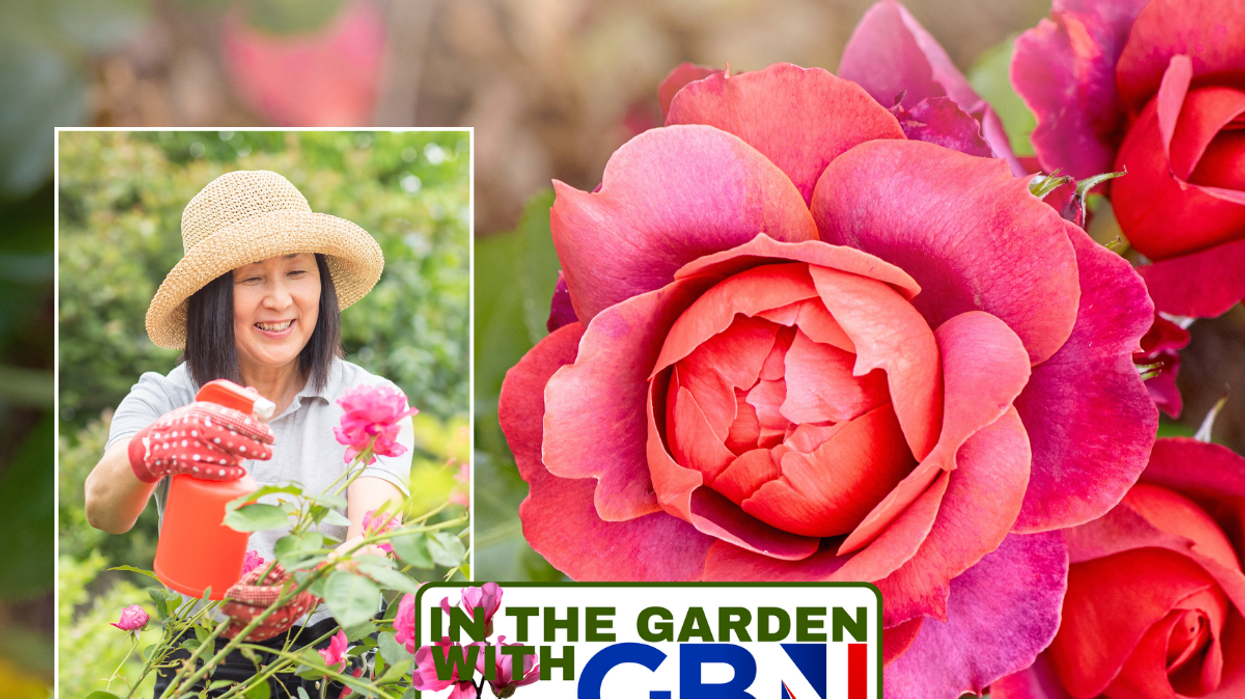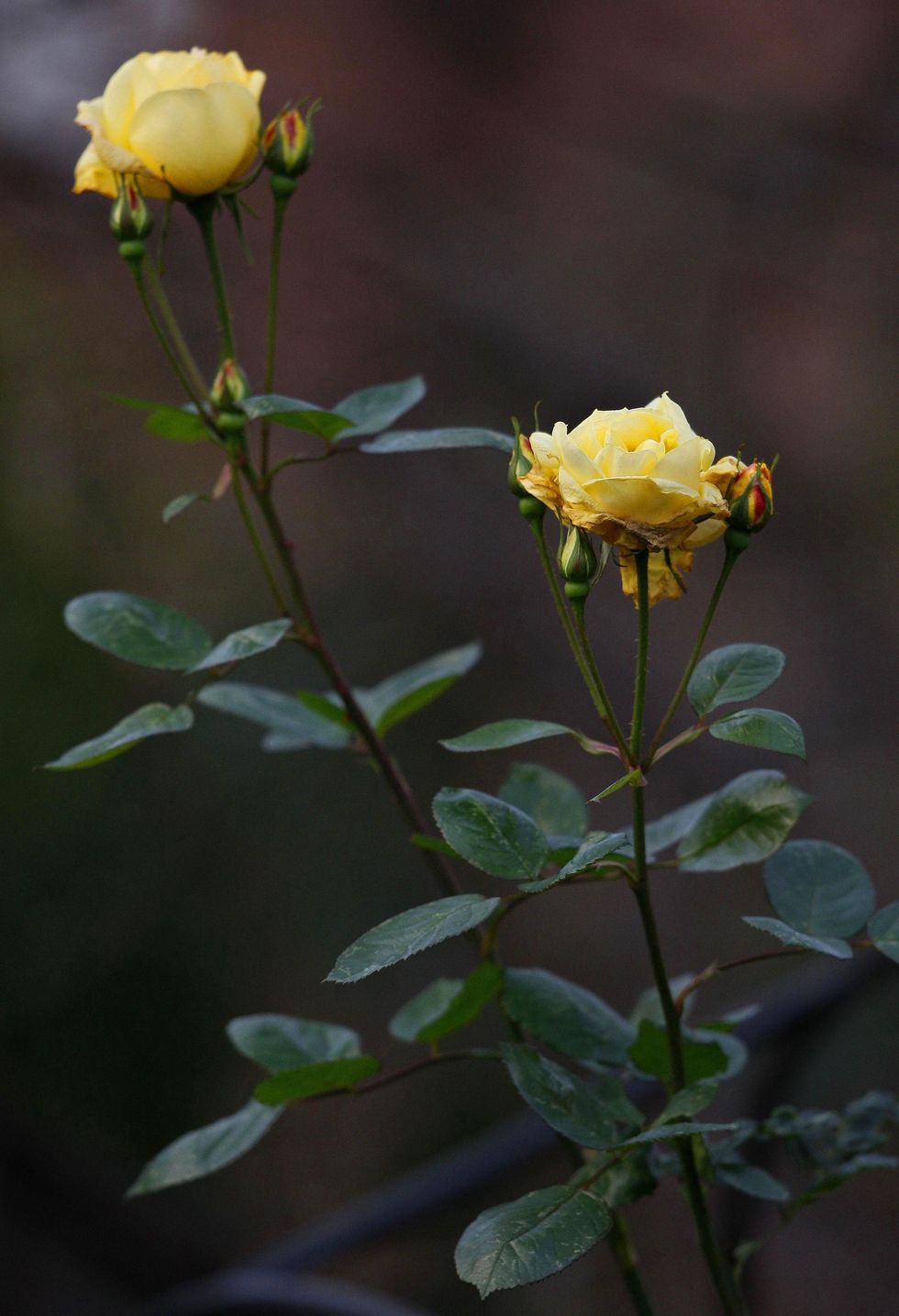In the garden with GB News: Roses - everything you need to know to get the perfect flower - planting, growing and making them last

The best way to care for roses have been shared
|GETTY

GB News is sharing everything you need to know about how to grow and care for the plants in your garden and home. This week, we look at roses and the best way to make them last
Don't Miss
Most Read
Roses are commonly associated with love and romance but can also represent friendship, mystery and achievement.
No matter what they mean to you, GB News has the best tips to help you plant and grow vibrant flowers in your garden, as well as how to keep them alive as part of a beautiful display inside.
Everything to know about caring for roses
Planting
Choosing the right place for roses is extremely important, so make sure to find a sunny spot and plant the flowers with plenty of space between them.
This ensures they get plenty of air circulation. When planting, it is also key to dig deep enough into the ground to accommodate the roots.

Roses need cared for differently throughout the year
|PA
Speaking to GB News, gardening expert at Fantastic Gardeners Nadezdha Yaneva said: "Choosing the right location is crucial before planting the roses. Roses thrive in full sunlight (they need at least six hours of direct sunlight per day), so it means that adequate spacing between plants is 60cm to 90cm, which can give the plant enough air circulation and reduce the risk of diseases.
"Dig a hole deep enough to accommodate the roots without bending or crowding." Gardeners must also water deeply as soon as they flower and consistently throughout the early days to keep them in good condition.
When to plant
Roses can be planted at various times throughout the year, but now is the ideal time to plant bare-root roses. Container-grown roses can be planted at any time apart from winter.
"Aim to plant bare-root roses in early spring after the last frost but before new growth begins. Container-grown roses can be planted in spring, summer or autumn," Nadezdha said.
Incorporate organic matter such as well-rotted compost or aged manure into the soil to improve fertility and drainage - a soil pH test can help you adjust the acidity of the soil.
How to look after roses in the garden
Once planted, it is important to look after the soil and to water and feed the roses regularly.
Nadezdha explained: "Water the plant thoroughly after planting to settle the soil. Keep in mind that you need to water deeply immediately after planting and continue to keep the soil consistently moist during the establishment period."
Composting regularly is a great way to feed "hungry roses" and ensure they thrive outside. Gardeners should also prune regularly to promote new flowers.
Founder of The Real Flower Company Rosebie Morton added: "Compost kitchen scraps and garden waste to ensure nutrient-rich soil, enriching your garden soil naturally. Leave some stinging nettles or plant comfrey and use soaked in water as an organic fertiliser. Roses are particularly hungry.
"Prune your roses every spring to get rid of dead or diseased wood and open up the plant to let light and air in. There is an expression – get your enemies to prune your roses because you want to be quite hard. Keep on top of deadheading throughout the season to promote new flowers and extend the season."
How to make roses last at home
Not only do roses make beautiful displays in the garden, but they are a great way to add a pop of colour inside homes. The best way to care for roses is to put them in a clean vase filled three-quarters up with water. Add in flower food if available.
Britons should keep the vase away from direct sunlight and heat as roses thrive in cooler environments. Make them last as long as possible by regularly refilling the vase with clean water and fertiliser. It is important to cut the stems every time the water is changed.
Container roses can also be grown inside. They should be placed in a well-draining container and gardeners should rotate regularly.
Nadezdha continued: "Taking care of roses at home requires rotating the roses every few weeks to ensure all sides receive adequate sunlight. Consider placing containers on wheeled platforms for easy movement. Use a well-draining potting mix designed for roses or container plants, and choose containers with drainage holes to prevent waterlogging.
LATEST DEVELOPMENTS

Roses can last longer at home if properly cared for
|PA
"Water containers rose when the top level of soil felt dry to the touch, and water was applied until it drained from the bottom of the pot. Use a balanced, water-soluble fertiliser with micronutrients, following the recommended application rates on the packaging."
Rose care timeline
Spring
- Prune: Shape roses and remove dead wood
- Fertilise: Look for a balanced fertiliser with a slow-release formula. Gardeners should watch out for pests and diseases during this time
Summer
- Water: Ensure roses remain watered well, especially during dry spells
- Deadhead: Deadhead spent blooms consistently during the summer months as this will encourage new flowers
Autumn
- Mulch: In autumn, gardeners should look to mulch with organic materials. This will insulate the roots and protect against temperature fluctuations
Winter
- Prune: Gardeners can prune lightly to remove dead and diseased food and shape flowers
- Mulch: Add an extra layer of mulch at the base to protect the plant from freezing temperatures. It is good to regularly check for signs of pests and disease at all times of the year










